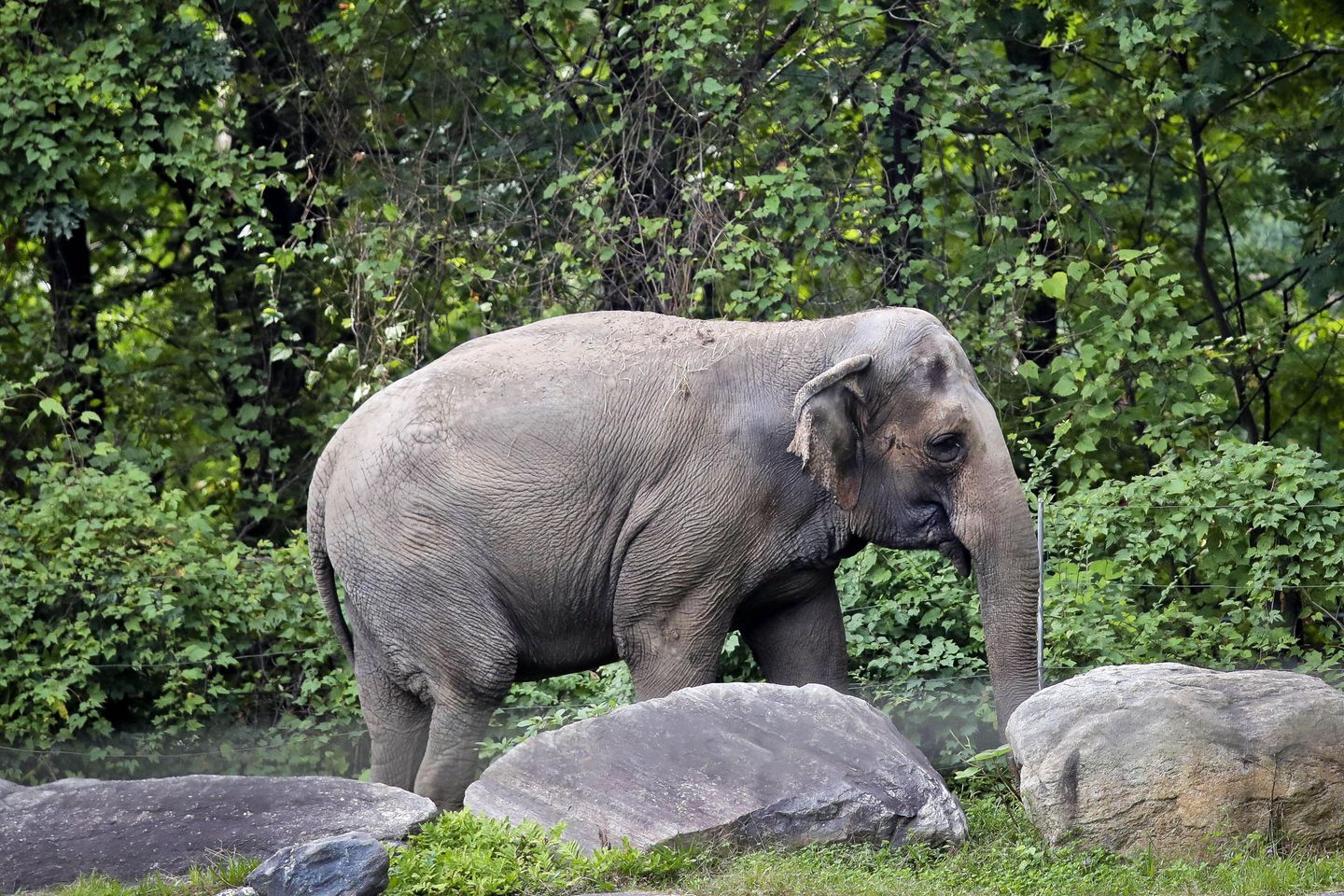Happy, a female Asian elephant in her early 50s, has been a resident at the Bronx Zoo in New York City since 1977. However, in recent months, she has not been seen in her exhibit, sparking concerns among animal rights activists and advocates.
The absence of Happy from her exhibit has raised questions about her well-being and the conditions in which she is being kept at the zoo. Activists have alleged that something may be amiss and have called for an investigation into her welfare.
The controversy surrounding Happy’s disappearance stems from a lawsuit filed by the Nonhuman Rights Project (NhRP) in 2018. The lawsuit sought to have Happy recognized as a legal person with the right to bodily liberty, and to have her transferred to a sanctuary where she could live in a more natural environment.
The lawsuit argued that Happy, like other elephants, is a highly intelligent and social animal that requires a large amount of space to roam and interact with other elephants. The cramped conditions of her enclosure at the Bronx Zoo were said to be detrimental to her physical and mental well-being.
Despite the lawsuit, Happy remained at the Bronx Zoo, and the case was dismissed by the court in 2020. However, the NhRP has continued to advocate for Happy’s rights and has raised concerns about her welfare in recent months.
In response to the activists’ allegations, the Bronx Zoo issued a statement saying that Happy is “healthy and safe” and that her absence from the exhibit is due to “routine management practices.” The zoo also stated that Happy has access to a larger area behind the scenes where she can move around freely.
However, animal rights activists remain skeptical of the zoo’s claims and have called for more transparency regarding Happy’s whereabouts and well-being. They argue that without proper oversight and accountability, animals like Happy may not receive the care and treatment they deserve.
The controversy surrounding Happy’s disappearance has reignited the debate over the ethical treatment of animals in captivity. Many animal rights advocates believe that wild animals, such as elephants, should not be kept in zoos or other artificial environments where their natural behaviors and instincts are compromised.
In recent years, there has been a growing movement to end the captivity of elephants and other wild animals in zoos and circuses. Several cities and countries have banned the use of wild animals in entertainment, and many zoos have made efforts to improve the living conditions of their animal residents.
Despite these advancements, the case of Happy and other elephants like her serves as a reminder of the ongoing challenges facing captive animals. The debate over the ethical treatment of animals in captivity is far from over, and the welfare of animals like Happy continues to be a topic of heated discussion among activists, advocates, and animal rights organizations.
As the controversy surrounding Happy’s disappearance continues to unfold, many are calling for a thorough investigation into her well-being and living conditions at the Bronx Zoo. The case has sparked a renewed sense of urgency in the fight for animal rights and has brought attention to the plight of captive elephants and other wild animals around the world.
In the meantime, animal rights activists and advocates are keeping a close eye on the situation, hoping for a positive outcome for Happy and other animals like her. The fight for the ethical treatment of animals in captivity is far from over, and the case of Happy serves as a poignant reminder of the importance of advocating for the welfare of all living beings.









